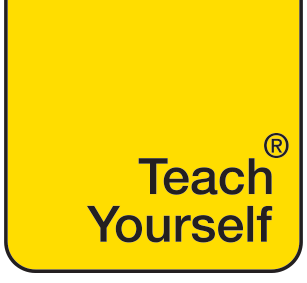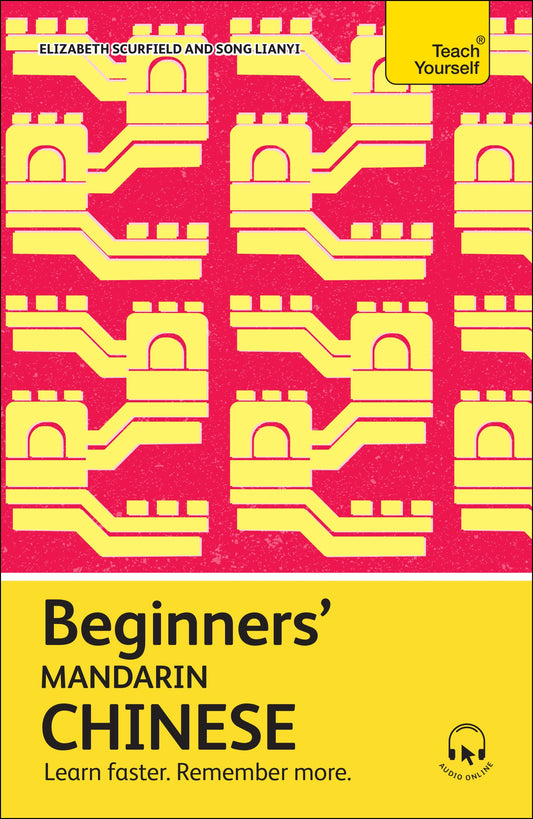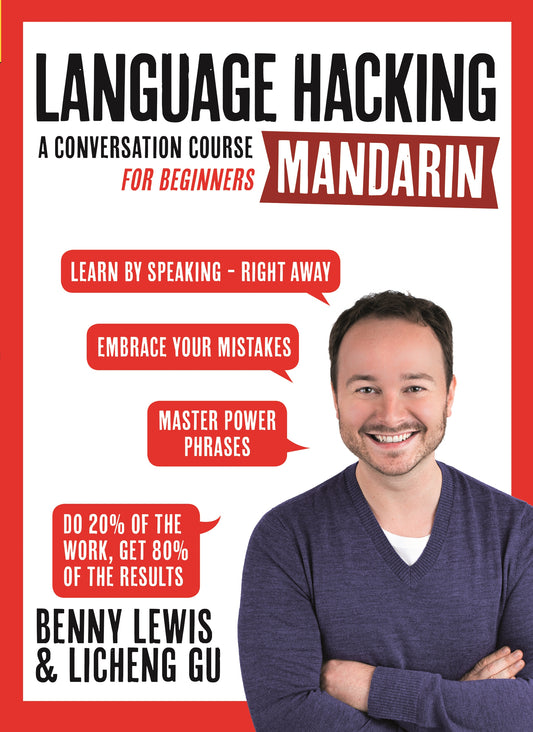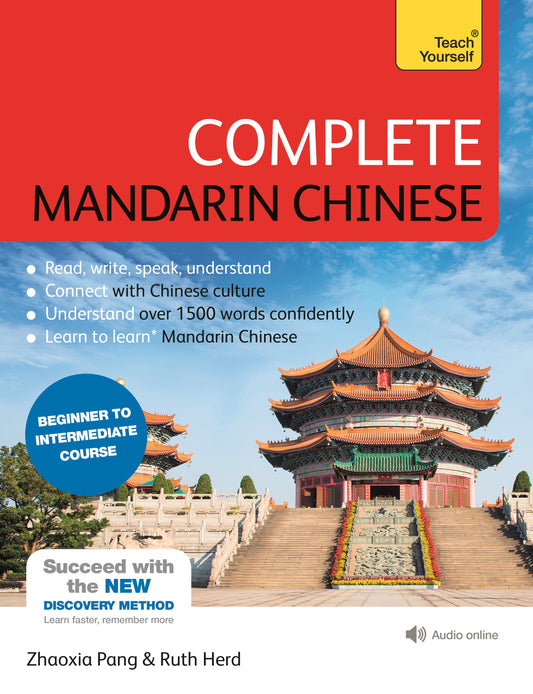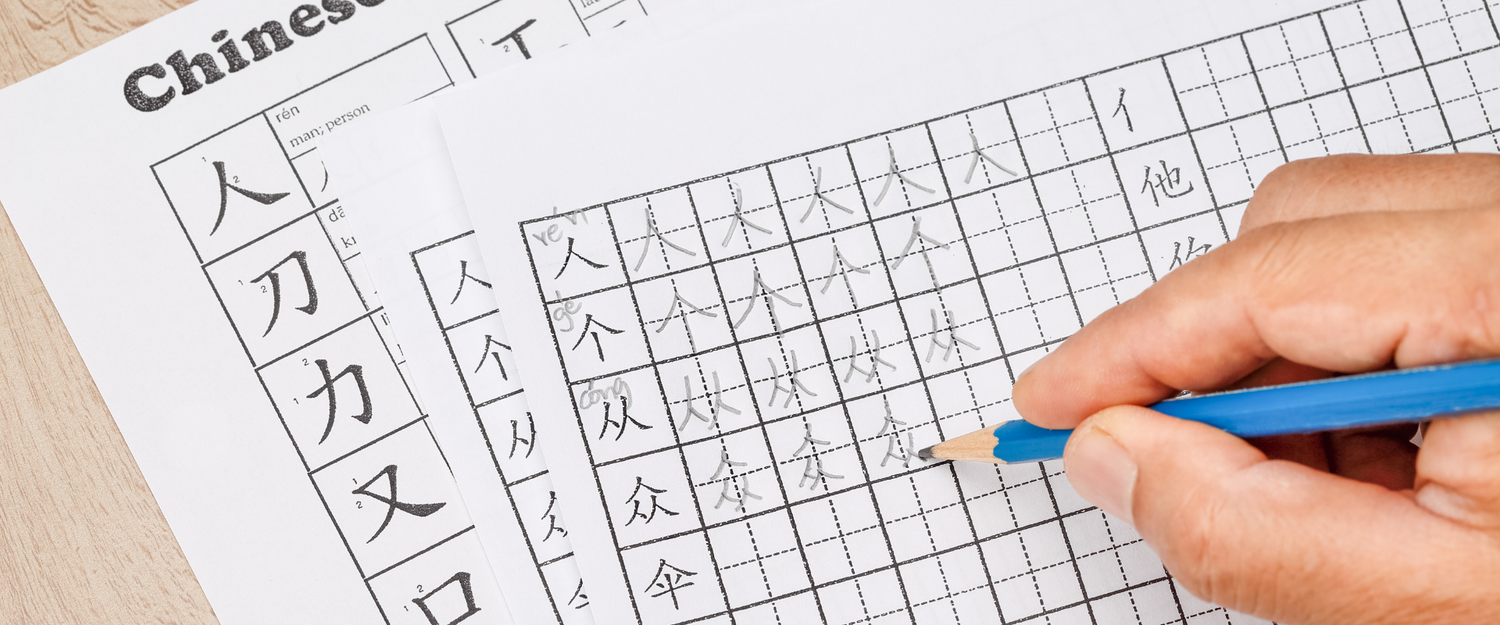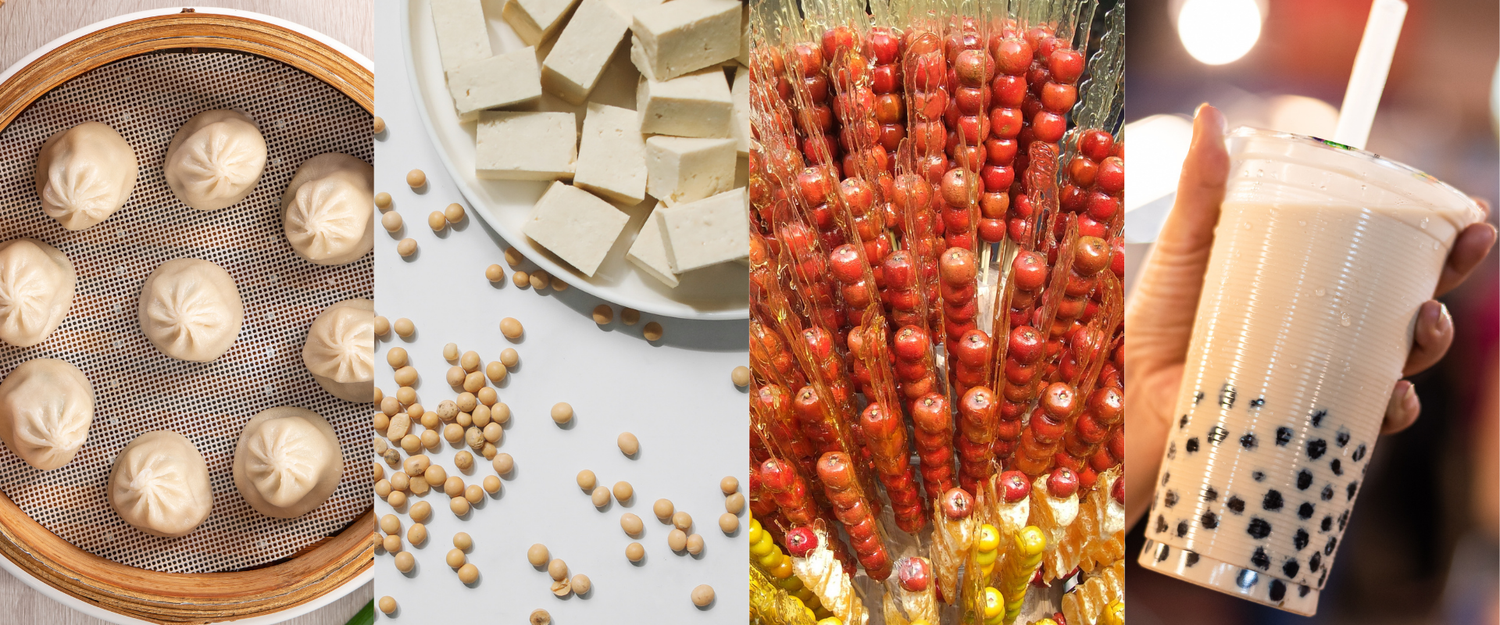Mandarin Chinese
With over 1 billion native speakers, Mandarin Chinese (普通话 - Pǔtōnghuà) is the official language of China, Taiwan and one of the official languages used in Singapore and at the United Nations. It's also the most standard form of Chinese used internationally for business and trade, as well as in the media and entertainment, spoken most widely by the Chinese diaspora.
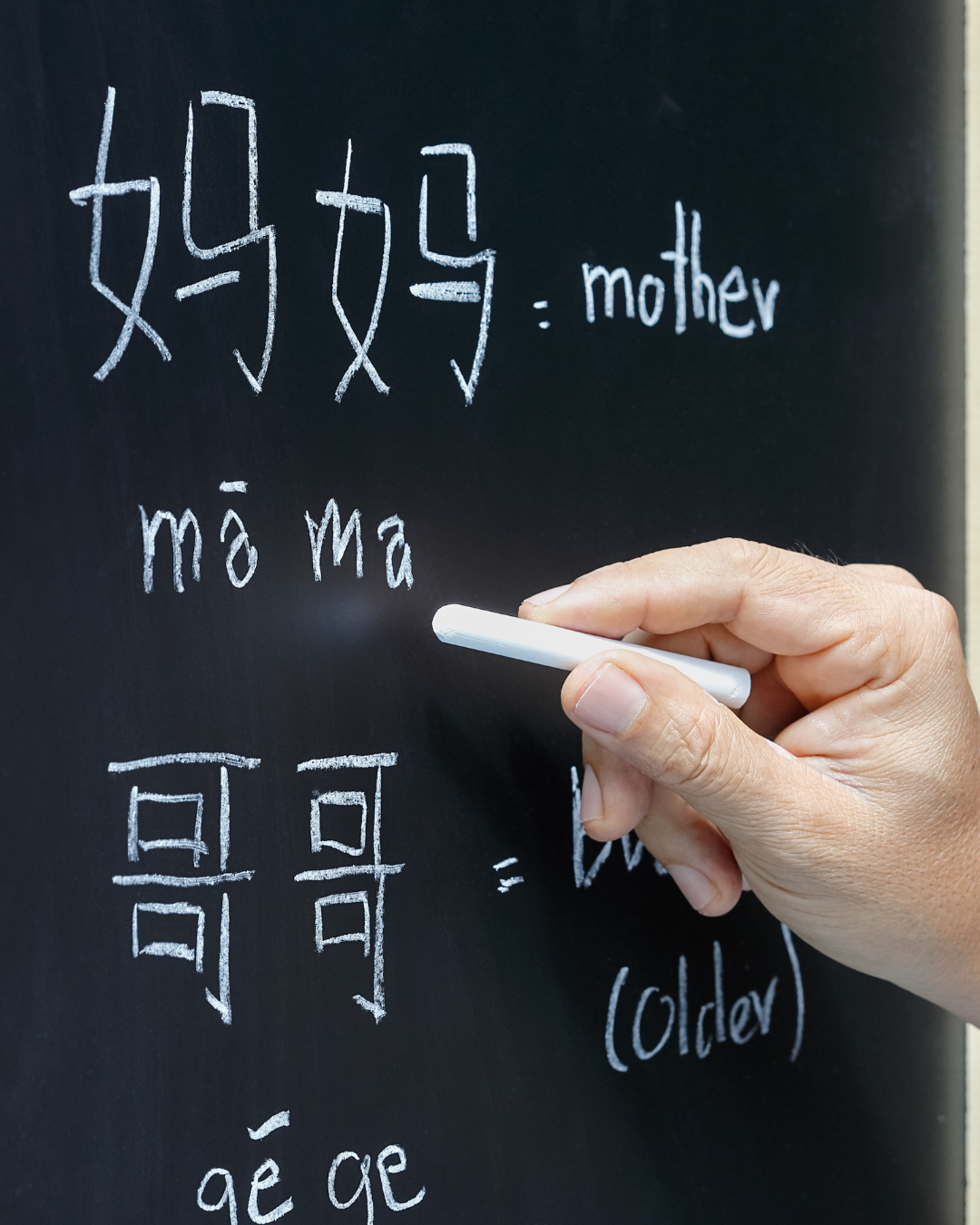
Is Mandarin a difficult language to learn?
According to research from US Foreign Service Institute, Mandarin Chinese is considered one of the Category IV Languages (that is, ‘exceptionally difficult for native English speakers’) along with Arabic, Cantonese, Japanese and Korean – but don’t let that put you off!
A large part of this is perhaps because Mandarin operates on a completely different writing system that uses pictorials, as opposed to an alphabet, known as 汉字, hànzì. However, 拼音, pīnyīn is the official Romanisation for Mandarin, and is used to help learners become accustomed to new characters. This means that fluency in Mandarin is nonetheless an attainable and fulfilling goal!
Additionally, Mandarin is a tonal language, meaning the pitch pattern of a syllable changes its meaning and includes 4 main tones (plus a neutral tone). Mastering this is often something beginner learners find the trickiest, which is why having audio spoken by native speakers to refer back and mimic is so vital.
That's why setting good foundations from the start for all four skills of listening, speaking, reading and writing Mandarin is so important for fluency, confidence and enjoyment.
Start learning Mandarin with confidence
-
Beginners' Mandarin Chinese
Regular price £14.99Regular priceUnit price per -
LANGUAGE HACKING MANDARIN (Learn How to Speak Mandarin - Right Away)
Regular price £19.99Regular priceUnit price per -
Complete Mandarin Chinese (Learn Mandarin Chinese with Teach Yourself)
Regular price £39.99Regular priceUnit price per
3 must-know Mandarin phrases
Here's some Mandarin you may know already if you...
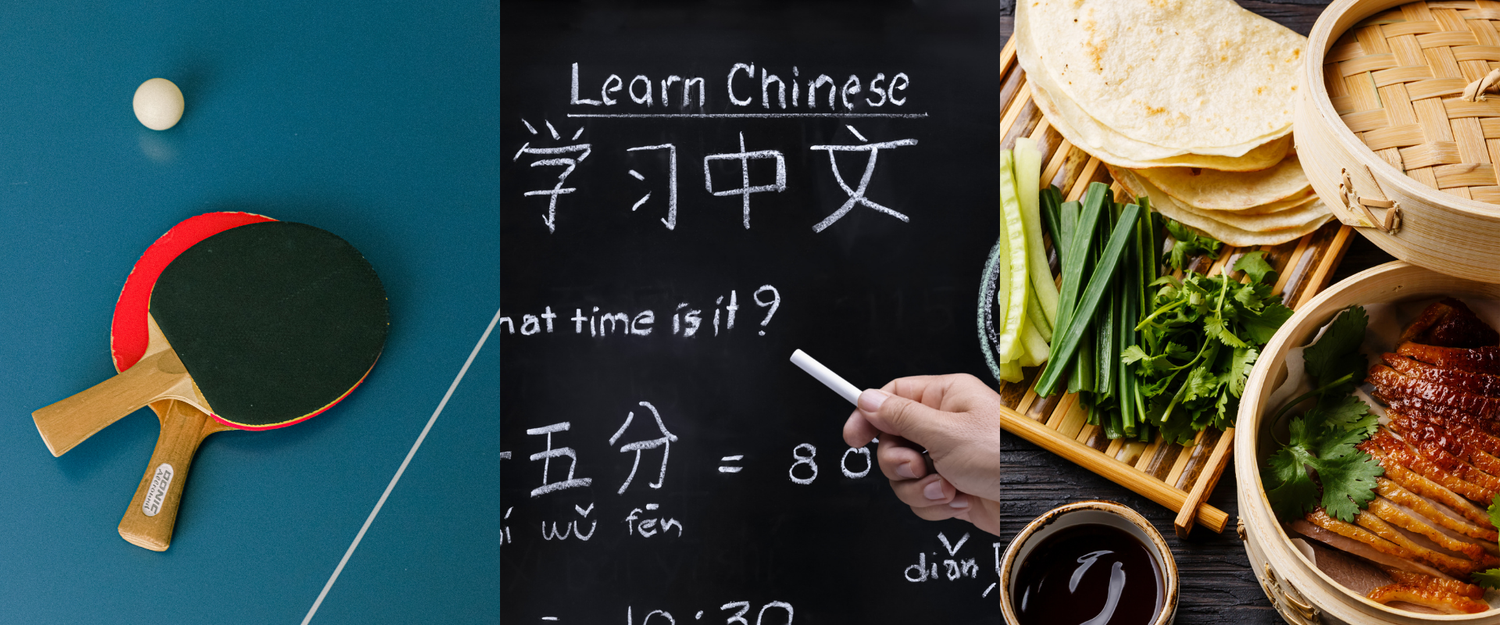
...watch sports
Watch sports – you might have heard supporters shouting,加油 (jiāyóu!)which literally means ‘add oil’ but is used to cheer and motivate at sporting events. You might also hear it at the end of the phrase, ‘中国队,加油! - Zhōngguóduì, jiāyóu!’ which means, ‘Go Team China!’ at international events like the Olympics. You might notice particularly fervent fans in sports like table tennis and basketball!
...have ever used the phrase ‘gung ho’
This phrase comes from工合 gōnghé and is actually shortened Chinese Industrial Cooperatives and was picked up by the US Marine Corps to embody the spirit of working together towards a shared goal. It can now have a negative connotation too and actually mean someone who is overly keen – but we wouldn’t blame you if you are a bit ‘gung ho’ in your language learning ambitions!
...like Chinese food
Over the last couple of years, social media has meant that more and more people all over the world are familiar with Chinese food. From the rise in popularity of tofu (豆腐- dòufu)as a meat alternative to the virality of snacks and drinks like tanghulu (糖葫芦– tánghúlu – candied fruit skewers)and bubble tea (珍珠奶茶- zhēnzhūnǎichá), you might find that the best incentive to learn about Chinese culture is for your tastebuds!
Ready to get started on your Mandarin journey?
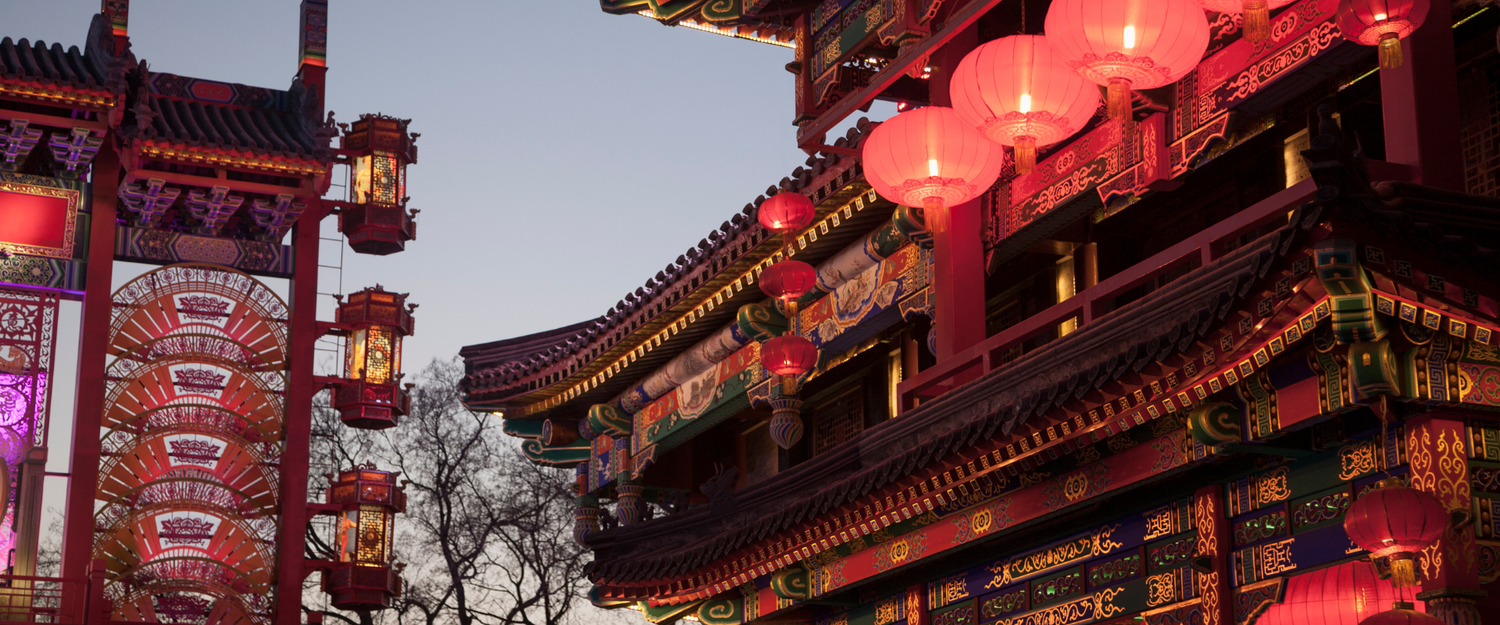
Get 10% off now!
Sign up to the Teach Yourself newsletter for 10% off your entire first order as well as language tips and updates!
